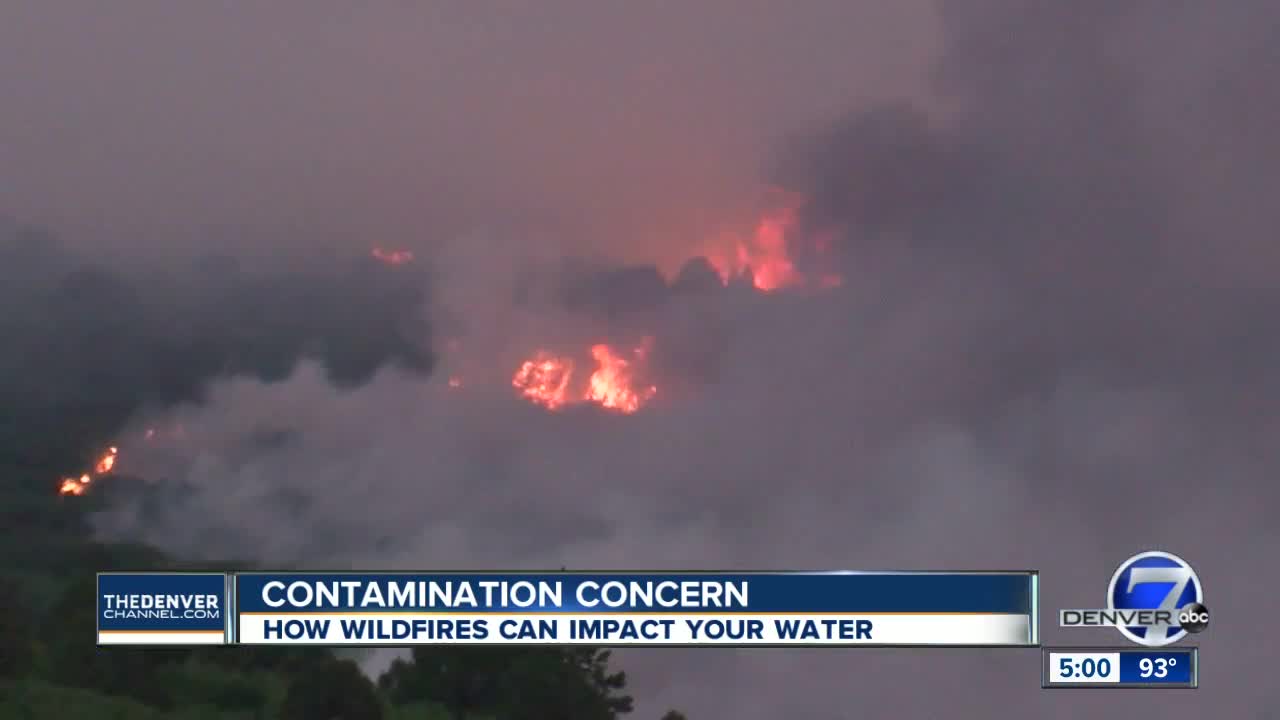DENVER — As major wildfires scorch thousands of acres of land across Colorado, a University of Colorado at Boulder researcher is warning affected residents about the short- and long-term consequences that these fires can have on their community.
Communities' water supplies, for example, could be negatively affected by the fires, according to a new study funded by the nonprofit Water Research Foundation. It reads that the wildfires Colorado has experienced this summer could affect the drinking water in cities hundreds of miles away, even after the fires stop burning.
“A wildfire will have a tremendous effect on the vegetation that results in the mobilization of material in the form of sediments,” said Fernando Rosario-Ortiz, the study’s lead author. “Ultimately, those sediments become turbidity and drinking water utilities need to remove that turbidity in order to produce water that is safer for consumers to use.”
Turbidity is defined as cloudy or hazy water looks from above. The more particles in the water, the more cloudier it becomes. The water can be treated and made safe for consumption and use, but the process can be costly.
In most instances, more sediment in the water means more chemicals needed to clean it up.
“What we found out is some of those waters — you can treat them but it's going cost you more. And there might be a capacity issue for the drinking water utilities where they can actually perform that additional treatment to be able to treat the waters,” Rosario-Ortiz said.
In an effort to keep drinking water in Colorado safe, Denver and some neighboring cities have dedicated $66 million to protect critical watersheds.
That money will go toward tree thinning and reforestation to prevent erosion.
“I think the worst-case scenario will be when you have one single source of water — let's say a river — and then that river is now impacted by a wildfire,” Rosario-Ortiz said. “Ideally, you have multiple sources.”
The study recommends that cities diversify its drinking source in case one river is contaminated so that the cities have backup options for their residents.



